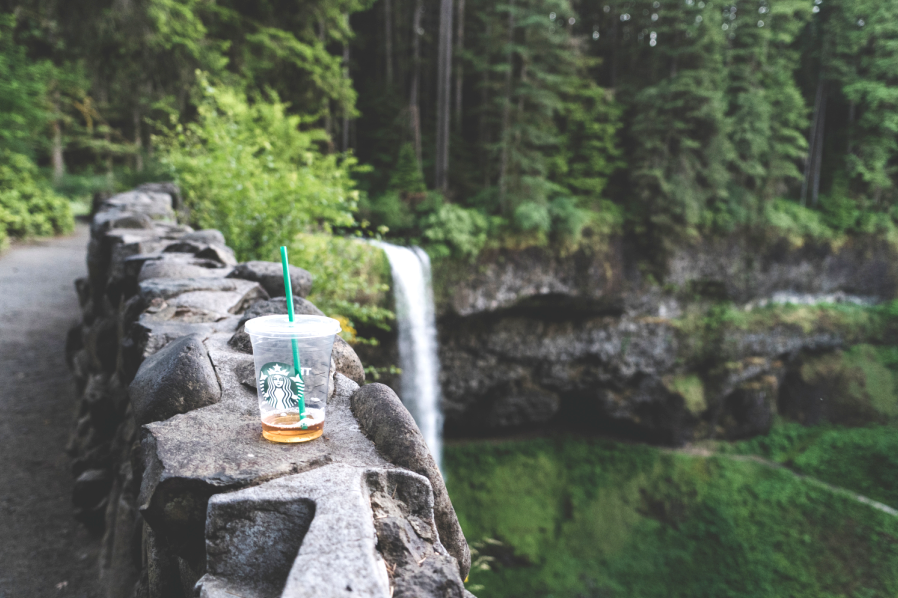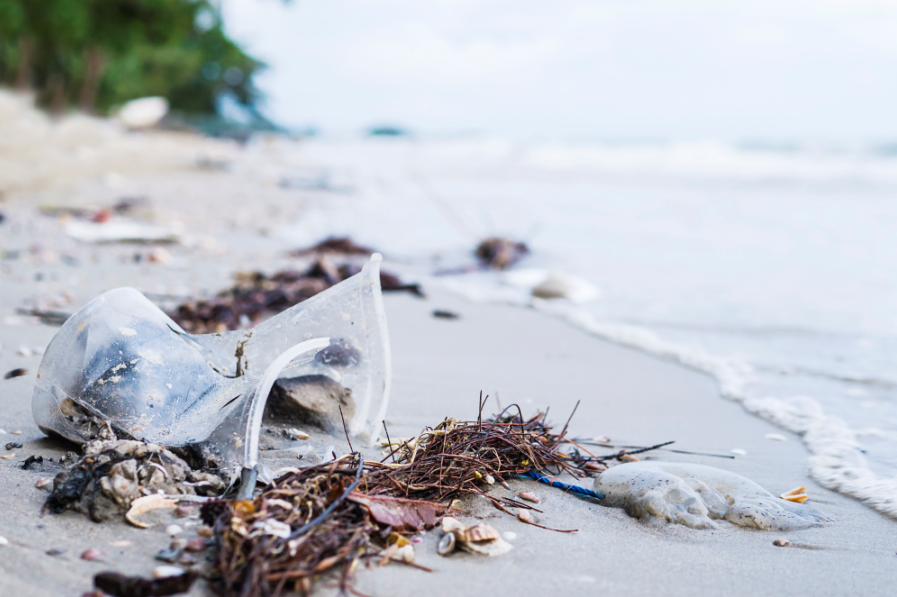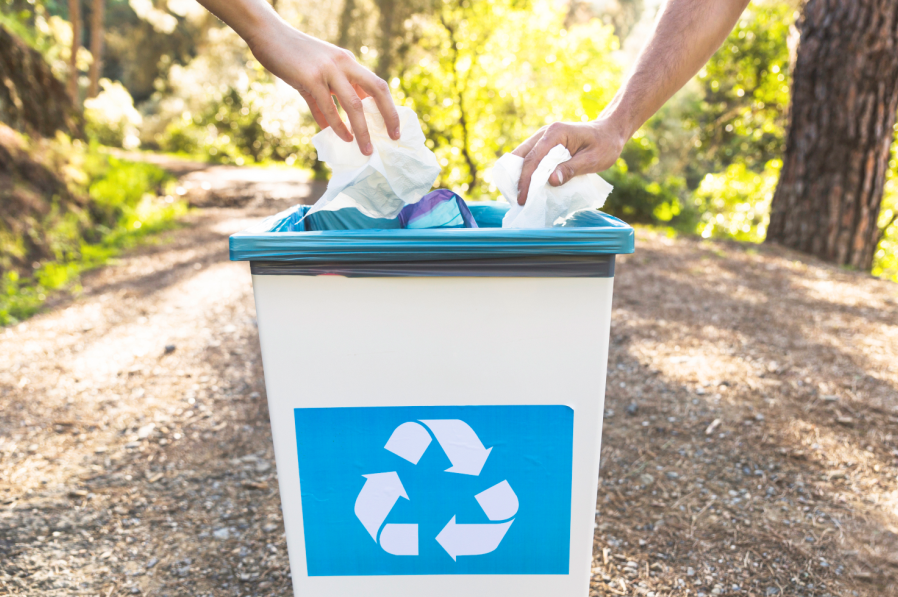
Plastic waste leaking into our environment is a pressing global environmental threat. Research from across the world shows that a big chunk of ocean plastic comes from regions without sufficient waste management and recycling.
The question is: can we put an end to plastic waste? Let’s find out.
Plastic Pollution: What You Need to Know
Plastic pollution is a direct result of plastic waste accumulation in the environment. Typically, it is categorized in primary plastics (e.g., bottle caps and cigarette butts) or secondary plastics derived from the degradation of the primary ones.
Also, it can be defined by the size - from microplastics to macroplastics.
Plastic pollution has a variety of forms, such as:
- Waste accumulation
- The accumulation of fragments, marine litter, or non-biodegradable fishing nets and microparticles of plastics, which continue to trap waste and wildlife
- Waste causing animal deaths by plastic object ingestion
- The arrival of microplastics from body care products and cosmetics

Plastic Pollution: The Effects on Nature and Life
When enough plastic has wreaked havoc on a particular area, it affects the natural environment and harms animals, plants, and even humans. The toxic pollutants from plastics can potentially damage the environment and cause water, land, and air pollution.
Here are some staggering details:
Food Chain Disruption
Plastic pollution affects even the world’s smallest organisms like plankton, causing problems for animals — big and small — that feed on them. Matthew S. Savoca and some other scientists discovered that odors from marine plastic waste change the behavior of fishes to find right foods. As a result, fish eats plastic. We eat fish. You can figure the rest out.
Environment Pollution
Scientists have discovered microplastics polluting a groundwater source, accounting for 25% of drinking water supply, worldwide. Microplastics already have a name for contaminating the world's surface waters, but it’s only recently that researchers have begun to explore their existence in groundwater systems.
The interaction with water forms life-threatening chemicals, which then seep underground, degrading the quality of water. The wind carries plastic from this area to that area, increasing land litter. Furthermore, it can get stuck in trees, fences, traffic lights, poles, towers, etc.
Effects on Wildlife
Every year, tens of thousands of birds, whales, seals, and turtles are killed due to plastic bag litter in the marine environment. These animals often mistake plastic bags for food like jellyfish. Once ingested, plastic bags cannot be digested by an animal; it stays inside the gut.
Poisonous to Humans
Bisphenol A (BPA), used to make plastic dinnerware, beverage containers, protective linings of toys and food cans, is considered an endocrine disruptor. What this means is it can both reduce or enhance endocrine activity in humans, causing adverse health effects.

Plastic Pollution: What You Can Do
In 2019, the independent news program Democracy Now spoke to resume writer and journalist Sharon Learner regarding how businesses in the US are refusing to use more sustainable materials rather than plastics. Her investigation found that in 2015, the US recycled only 9 percent of its plastic waste. The figure has dropped even lower since then.
That said, here’s what you can do now to reduce plastic waste.
Shop Eco-Friendly
There was a time when plastic bags used to be a modern convenience. However, now we have an alternative: reusable bags. How many plastic bags do you usually carry out of a grocery shop? And how many times a week do you visit a grocery store? Now do the math.
Bring your own reusable bags to markets, and avoid using single-use plastic bags.
Also, it’s important to note that plastic pens are just as polluting as plastic bags. The pen you use to write your homework or nursing assignments has a large share in non-degradable waste. Since the use of pens cannot be stopped, you can buy refills instead of purchasing new pens. Fountain pens are also a great alternative.
Say No to Bottled Water
Staying hydrated is important, but you need to avoid using single-use plastic water bottles. They are recommended for single-use only, meaning every time you finish a bottle, it goes into the trash. Buy reusable water bottles and bring a reusable coffee cup whenever going out to get beverages.
Refuse Straws
Plastic straws are the most common items of marine plastics found across the world, and they are usually not recyclable. As a consumer, use your voice at cafes and restaurants to refuse plastic straws and stirrers.
Put Pressure on Manufacturers
While you can certainly make a difference through your own habits, manufacturers also have a significant footprint. If you think a company could be better and safer about its packaging, ensure your voice is heard. Send a tweet, write a letter, seek thesis help, or hit them where it really hurts: Give your hard-earned money to a more suitable competitor.
Recycle Everything
This goes without saying, but whenever you use single-use plastics that can be recycled, recycle them. Research shows, only 25% of the plastic produced in the US is recycled. If we could recycle the other 75%, then every year, we’d be saving 1 billion gallons of oil and 44 million cubic yards of landfill space.
Final Words
The flow of plastics into the environment has reached catastrophic proportions. The evidence? It’s clearly on display in the oceans. In fact, between 4.8 and 12.7 million tonnes of plastic enter the ocean each year.
We depend on plastic, but now we are drowning in it.
It’s time we put an end to plastic waste once and for all. The world depends on it.
Written by Justin Osborne
About the Author
Justin Osborne is a writer at essay writers and dissertation service, he loves to share his thoughts and opinions about education, writing and blogging with other people on different blogs and forums. Currently, he is working as a content marketer at college paper help and uni assignment help.
You may also like
The Importance of Glass Recycling: Stats and Facts You Should Know
The Most Effective Steps That Help You Become More Environmentally-Friendly
Sustainable Living 101: Here Are the Changes That Can Make a Huge Difference
